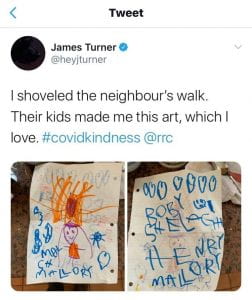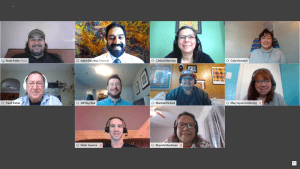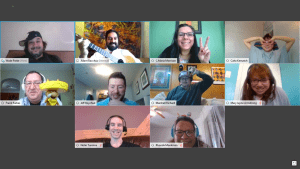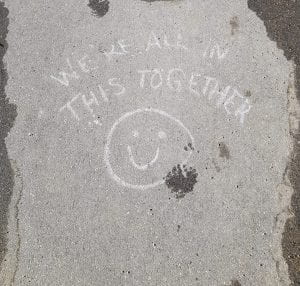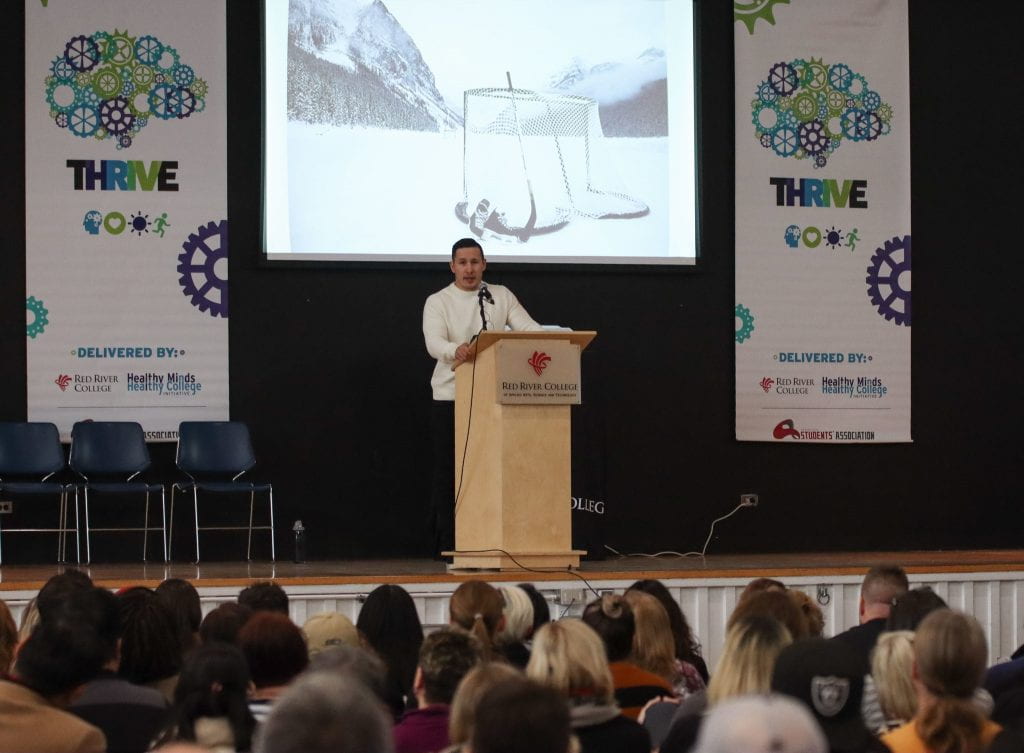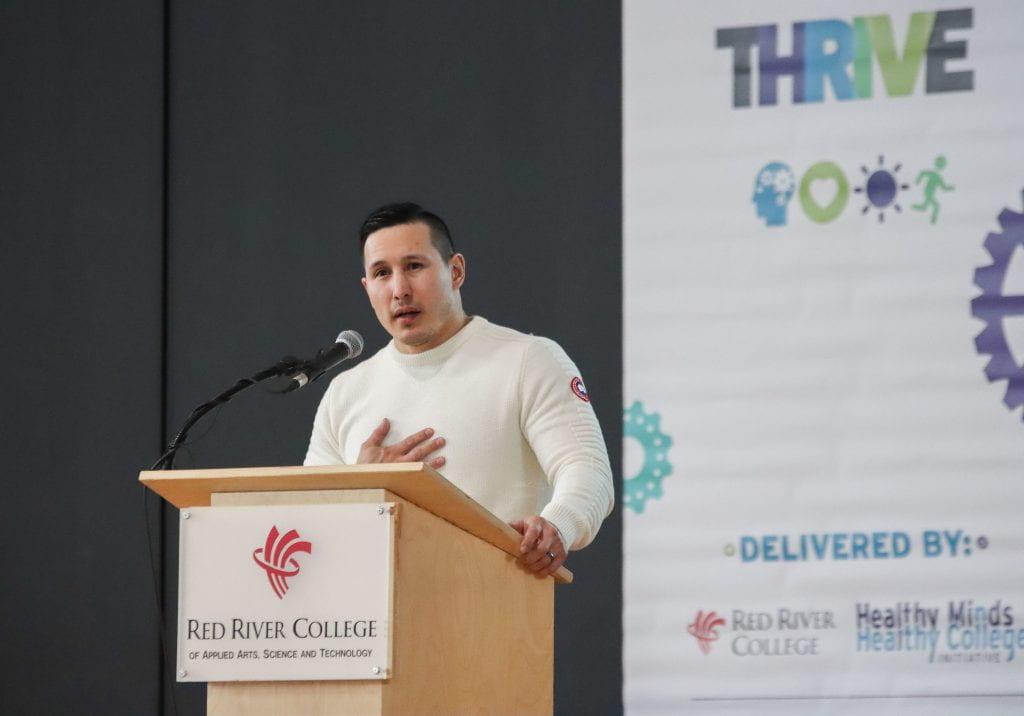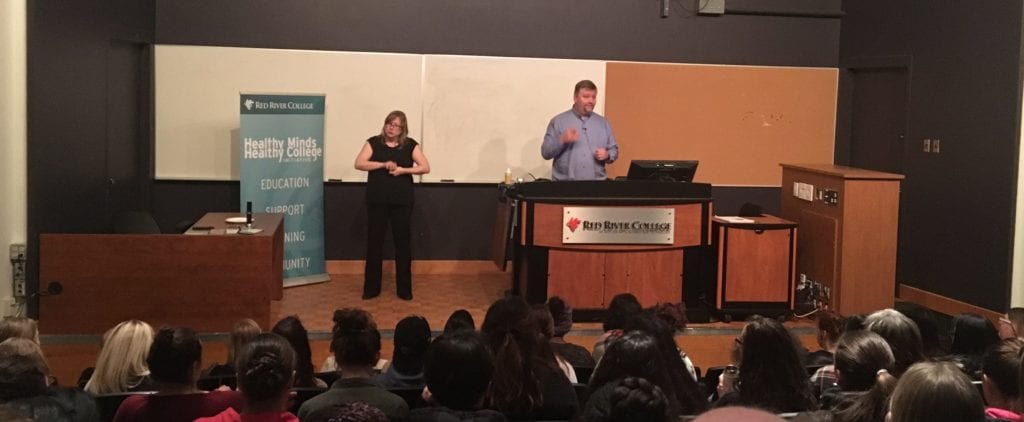The #COVIDkindness Grows
RRC students and staff are practicing #COVIDkindness and paying attention to the kind acts of others. As we do this, our resilience grows. The stories below inspire us all to keep kindness and gratitude a priority throughout these challenging times.
From James Turner, Creative Communications Instructor
From Wade Parke, Co-op Coordinator in Indigenous Student Support & Community Relations
“What does it mean to be part of a team? Like many of you, I miss working together in a communal space with my team. We miss the things that give us meaning. I miss watching and cheering on our Winnipeg Jets. As a Winnipegger, I felt part of that team. As individuals we all pursue our goals and missions in life to the best of our abilities, but what really brings us together is our teams and communities; the coming together to support each other to bring out our best.
Our teams over the last couple of weeks have had to adapt to a new way to work and live. Our families, our jobs, and our community have adjusted, to work together to be the best we can under this cloud of uncertainty. But, what keeps my spirit up and keeps me motivated is being able to connect with my team to work together, talk, laugh, and check in with one another. So as we move forward I want to encourage everyone to be a good teammate at work, at home, and in the community. There’s a saying in hockey called taking one for the team So let’s all take one for the team during this time of adjustment.”
From Paula Amaral, Hospitality and Tourism Instructor
“I want to give a big kindness shout-out to our tech support specialist at the School of Hospitality and Culinary Art: Danny Lam.
When I first started teaching online using WebEx, Danny made himself readily available as he attended my classes while I was teaching. The support Danny showed while being present in the classroom over several sessions was really appreciated and comforting. Not only did he answer my questions when I was unsure of some of the features in Webex and provide valuable information to me and the students, but he also made himself available via cell phone/texting/emailing if I still needed help after I became somewhat proficient with the program. All of this was very much appreciated and put me at ease knowing I could fall back on him if I didn’t know how to navigate my way around. Thank you so much, Danny!”
Join the Movement! Here’s how it works
Over the next few weeks:
- Pay attention to acts of kindness you witness (or perform yourself).
- Send a description and photo (where possible) to blsawatzky@rrc.ca.
- Post on your social media channels, using the hashtag #COVIDkindness and tag in RRC.
Each week, Mental Health Coordinator, Breanna Sawatzky will collate your acts of kindness and share them in a Wellness Blog post. All students and staff are invited to participate.
The Goal
This movement is meant to foster a supportive community environment along with gratitude, both of which promote good mental health.
Everyone who participates will be entered in a prize draw. Prizes are to be determined, based on availability, but will certainly lift spirits.

